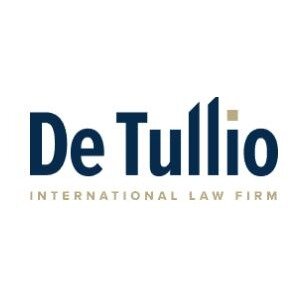Best Trusts Lawyers in Martina Franca
Share your needs with us, get contacted by law firms.
Free. Takes 2 min.
List of the best lawyers in Martina Franca, Italy
About Trusts Law in Martina Franca, Italy
Italy doesn't traditionally recognize the concept of trusts in its civil law system. However, it ratified The Hague Convention on the Recognition of Trusts in 1992, hence, trusts established under foreign law are recognized in Italy. Martina Franca, like other Italian cities follows this law. Trusts are typically used for estate planning, asset protection, charitable activities, and as a wealth and business management tool. Given Italy's complex legal and tax system, it is important to involve a local attorney when dealing with trusts. He/She must have a good understanding of both local and international laws affecting trusts.
Why You May Need a Lawyer
There may be a number of situations where you may need a lawyer. These include setting up a trust for estate planning, tax planning, ensuring the protection of assets from creditors, separation or divorce, music rights, administration of assets, patrimony segregation and charitable intends. Legal help can also be necessary while dealing with trusts established under foreign laws, as the interpretation and application of trusts law can be a complicated area to navigate without legal education and experience.
Local Laws Overview
Although the Italian legal system does not traditionally include the concept of trust, trusts incorporated under foreign law, especially those regulated by the Hague Convention on the Recognition of Trusts, are recognized for tax purposes. The main law related to trusts in Martina Franca is the Italian Civil Code. However, laws concerning inheritance, property, taxation, and more can have an impact. Therefore, local advice is crucial in integrating the benefits of a trust with the existing Italian statutes.
Frequently Asked Questions
1. Can I set up a trust for estate planning purposes in Martina Franca?
Yes, you can set up a trust for estate planning purposes, but should consult with a trusts lawyer for appropriate advice on how to do so effectively within the framework of Italian law.
2. Are overseas trusts recognized in Martina Franca?
Yes, trusts established under foreign law, and that comply with the Hague Convention on the Recognition of Trusts, are recognized in Italy, including Martina Franca.
3. Is the trust's income taxed in Italy?
Trusts are subject to tax obligations depending on how they are classified - 'transparent' or 'opaque'. The nature of the trust, beneficiaries, and source of income impact tax. Seek advice from a locally experienced attorney.
4. Can a trust protect my assets from creditors?
Yes, a trust can add a layer of protection from creditors, but it's important to structure it correctly to ensure assets are truly safeguarded. Seek trusted legal advice for understanding.
5. Will my inheritors have to pay inheritance tax if I set up a trust?
It depends on the nature of the trust, the assets held within it, and who the beneficiaries are. A well-planned trust strategy can minimize tax liabilities, but this requires specialized legal advice.
Additional Resources
For additional resources, you may refer to the Italian Revenue Agency, Italian Civil Code or the documents of Hague Convention. Also, seeking advice from organizations dealing with Trusts Law such as AITI (Italian Association of Trust Law) can be beneficial. Local law firms specializing in trusts and estates can also be helpful resources.
Next Steps
If you need legal assistance with trusts in Martina Franca, Italy, consider reaching out to local law firms that specialize in trusts. Prepare a list of your goals and questions, gather any relevant documentation and schedule a consultation. Remember, a well-established and properly managed trust can provide significant benefit for you and future generations.
Lawzana helps you find the best lawyers and law firms in Martina Franca through a curated and pre-screened list of qualified legal professionals. Our platform offers rankings and detailed profiles of attorneys and law firms, allowing you to compare based on practice areas, including Trusts, experience, and client feedback.
Each profile includes a description of the firm's areas of practice, client reviews, team members and partners, year of establishment, spoken languages, office locations, contact information, social media presence, and any published articles or resources. Most firms on our platform speak English and are experienced in both local and international legal matters.
Get a quote from top-rated law firms in Martina Franca, Italy — quickly, securely, and without unnecessary hassle.
Disclaimer:
The information provided on this page is for general informational purposes only and does not constitute legal advice. While we strive to ensure the accuracy and relevance of the content, legal information may change over time, and interpretations of the law can vary. You should always consult with a qualified legal professional for advice specific to your situation.
We disclaim all liability for actions taken or not taken based on the content of this page. If you believe any information is incorrect or outdated, please contact us, and we will review and update it where appropriate.








